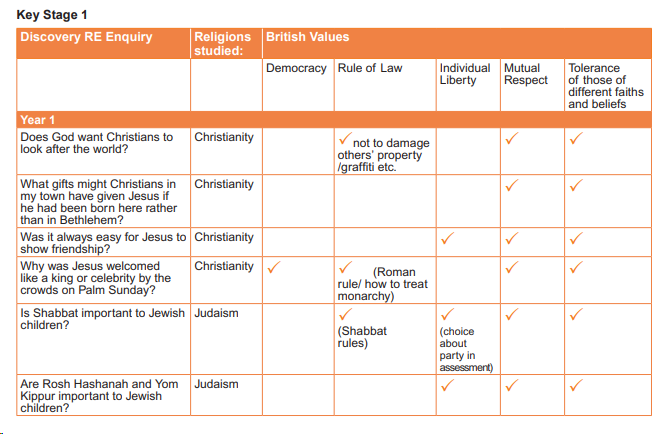PSHE :
Democracy: Through discussions and activities, students learn about the importance of respecting others’ opinions, participating in decision-making processes, and understanding the value of a democratic society.
Rule of Law: PSHE teaches students about the concept of laws, both in terms of their creation and the need to abide by them. It helps students understand the consequences of breaking laws and fosters a sense of responsibility and accountability.
Individual Liberty: PSHE encourages students to explore their own values and beliefs while respecting the rights and freedoms of others. It promotes the idea that individuals have the right to express themselves and make choices within the boundaries of the law.
Mutual Respect and Tolerance: PSHE helps develop an understanding and appreciation of diversity in society. It encourages respect for others, regardless of differences in race, religion, gender, sexuality, or background. Tolerance and acceptance of different viewpoints are emphasized, fostering a sense of unity in diversity.
Additionally:
Social Responsibility: PSHE instills a sense of social responsibility by addressing issues such as community engagement, citizenship, and the importance of contributing positively to society. Students learn about the impact of their actions on both local and global communities.
Equality: PSHE educates students about the principles of equality and the importance of treating everyone with fairness and without discrimination. It addresses issues related to gender equality, LGBTQ+ rights, and other aspects of inclusivity.
By incorporating these values into the PSHE curriculum, schools help students develop a strong moral compass and a sense of civic responsibility. This, in turn, contributes to the creation of well-rounded individuals who are prepared to actively participate in and contribute to a democratic and diverse society, aligning with the core principles of British Values.
RE – Religious Education is a key player in engendering knowledge and understanding which can lead to tolerance and respect for others and their beliefs. It does not, however, teach children to passively accept, but rather encourages evaluation and critical thinking, equipping them to consider belief positions they encounter. RE contributes significantly to the British Values agenda and our mapping documents group show how. An example is shown below:

